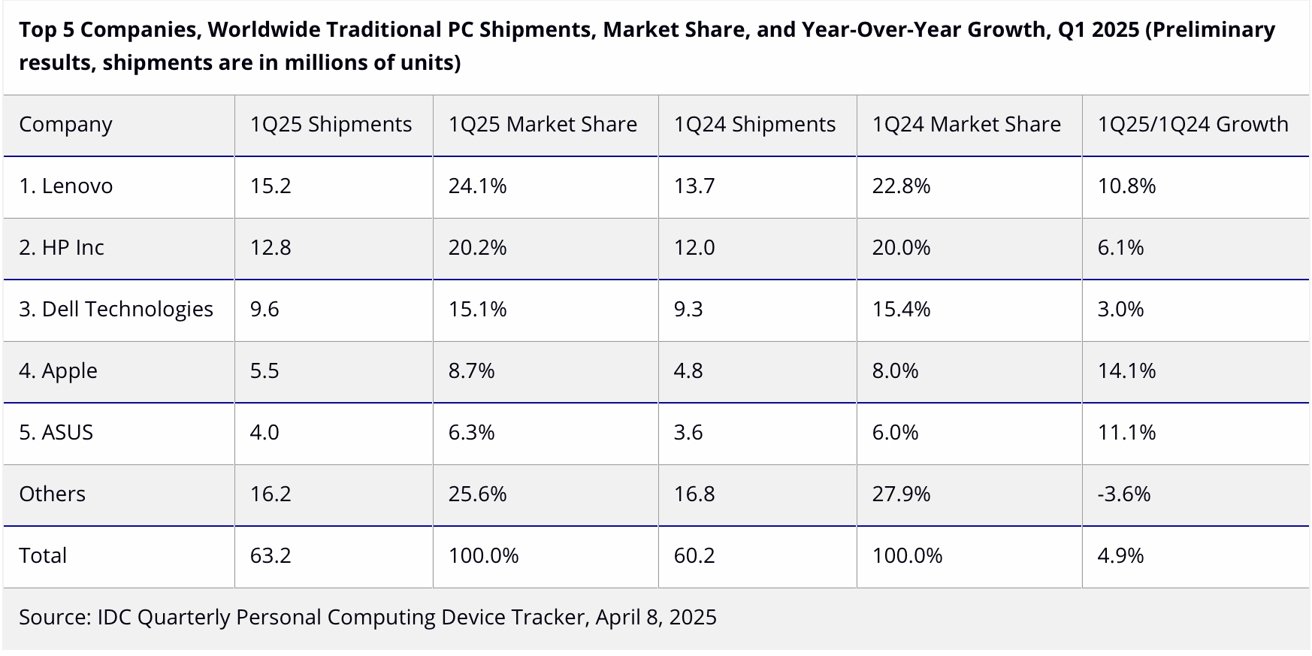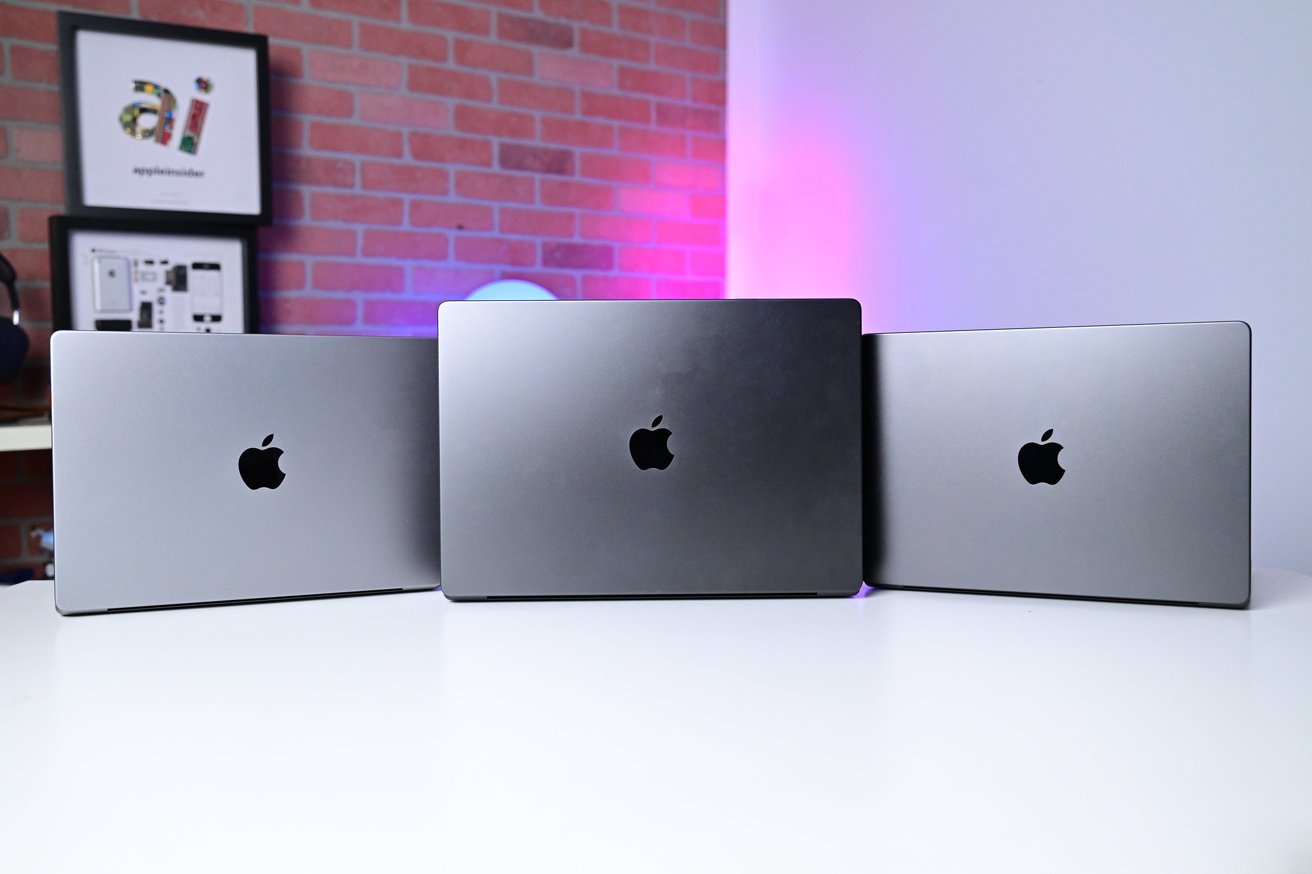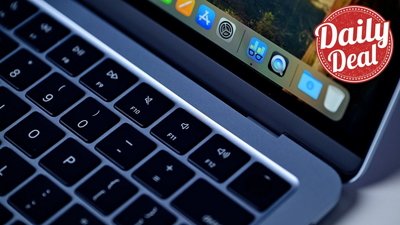Apple's Mac sales are rising sharply just as Trump's tariffs guarantee that the the global PC market will have one of its most unpredictable years ever.
According to preliminary data from International Data Corporation (IDC) on April 8, Apple shipped 5.5 million Macs in the first quarter of 2025, up from 4.8 million in the same period of 2024. That gave the company an 8.7 percent share of the global PC market, improving on the 8 percent it held a year earlier.
The overall market grew just 4.9 percent. Apple is outperforming competitors, riding the wave of demand for so-called "AI-ready" hardware, and leaning on its loyal base in the premium segment.
The top five PC vendors globally in Q1 2025 were Lenovo, HP, Dell, Apple, and Asus. Lenovo led with 15.2 million units shipped and 24.1 percent of the market, followed by HP at 12.8 million (20.2 percent) and Dell at 9.6 million (15.1 percent).
In the 2024 year-ago quarter, the market was still clawing its way out of a historic downturn, post COVID surge. Shipments had plunged 29 percent in Q1 2023 to just 56.9 million units, as demand cratered and inventory piled up.
By Q1 2024, conditions had stabilized, with modest 1.5 percent year-over-year growth fueled by easier comparisons, easing inflation, and early interest in AI-capable PCs. China had remained a weak spot due to economic pressures and shifting consumer preferences.
Apple gains market share as rivals stall
While Apple saw a sharp year-over-year decline in Mac shipments in early 2023 — down 40 percent in the first quarter — it rebounded strongly in the second quarter, growing over 10 percent as rivals continued to slide.
The third quarter in 2024 brought another dip, with shipments falling more than 20 percent compared to the previous year. Apple posted stronger year-over-year growth than most top-tier rivals — even while remaining fourth in overall shipments.
The bump comes as Apple continues to expand its Apple Silicon lineup, with new M3-powered Macs offering performance gains and longer battery life. Enterprise interest in Macs has also grown, particularly in sectors prioritizing mobile performance, security and integration with iOS devices.
 Top 5 Companies, Worldwide Traditional PC Shipments, Market Share, and Year-Over-Year Growth, Q1 2025. Image credit: IDC
Top 5 Companies, Worldwide Traditional PC Shipments, Market Share, and Year-Over-Year Growth, Q1 2025. Image credit: IDCUnlike many Windows PC makers, Apple controls both silicon and operating system, delivering consistent performance and battery gains with each new generation. The vertical integration also builds in on-device AI capabilities like neural engines, positioning Apple ahead of rivals retrofitting AI features into legacy architectures.
The company is also expected to lean more heavily into AI hardware capabilities later in the year, possibly aligning with announcements at WWDC in June. For Apple, "AI-ready" hardware involves on-device models running directly on the neural engine, improved local processing for Siri and accessibility features, and tighter integration with Apple's ecosystem.
Still, the road ahead in 2025 is anything but certain.
New tariffs raise prices & shake up the supply chain
The market's first-quarter strength was partly fueled by a rush to ship devices before U.S. tariffs kicked in. On April 2, the Biden administration announced new import tariffs on Chinese-made electronics, including PCs.
Vendors accelerated shipments to avoid price hikes in the second quarter and beyond.
IDC warned that the new tariffs are likely to trigger inflation across the industry, with costs passed directly to consumers. Apple, with its tightly controlled supply chain, may be better positioned than some rivals — but it's not immune.
Longer term, tariffs may accelerate Apple's gradual diversification away from Chinese manufacturing. The company has already expanded assembly operations in India and Vietnam, and any further geopolitical pressure may quicken those moves.
However, transitioning high-volume production without sacrificing quality or cost-efficiency remains a challenge.
Apple's double-digit growth while others tread water hints it's better equipped to ride out the turbulence. The company's tight integration of hardware, software and services gives it more pricing power and brand loyalty, which could cushion any future downturn.
It's unclear if that's enough to sustain momentum as tariffs ripple through the market. For now, Apple is gaining ground while its rivals brace for impact.
 Andrew Orr
Andrew Orr







-m.jpg)






 Malcolm Owen
Malcolm Owen
 William Gallagher
William Gallagher

 Wesley Hilliard
Wesley Hilliard



 Christine McKee
Christine McKee




-m.jpg)




4 Comments
I feel like there's an opportunity for Apple here. Apple has notoriously high margins on their hardware—as much as 50% on some products, I think—whereas other manufacturers have always had razor thin margins; it's why the "Apple products are so expensive" trope has endured as long as it has. Apple has some room to narrow margins on some products, maybe even take some losses in some lines, so long as those losses can be balanced by other lines. Profits will take a massive hit either way. All other companies will have to sharply increase prices on their products to compensate for the tariffs, whereas Apple could keep their prices the same, and use that in their marketing: "While others are increasing prices on their products, the new MacBook Air still starts at $999. And we're introducing the new iMac e [following the iPhone 16 e nomenclature], also starting at $999."
All of those companies listed are also buried deep into China when it comes to the supply lines just like Apple.